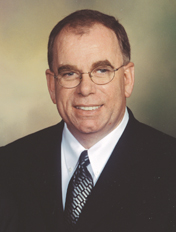
Walter Isaacson’s biography of Steve Jobs has become required reading for many business managers who want to learn more about the man who built Apple.
There’s no doubt that Jobs was brilliant. Nor can it be refuted that he was, well, a jerk. Certainly, the lesson that some leaders will take is that they need to quit coddling the help. And if you are one of those people, here’s my advice: Stop before you do something monumentally stupid.
Jobs succeeded despite his jerky qualities, not because of them. The real reason he became a billionaire while creating one of the world’s most trusted brands is that he bore full responsibility for his company’s work.
Yes, he was a stickler for relentless execution and had the ability to think beyond the day-to-day. But those are price-of-admission requirements for any leader who wants to do more than run with the herd.
What made Jobs truly unique is that he refused to be a slave to the bean counters. Instead, he put his engineers — the people who actually created the things his company sold — first. They rewarded this unorthodox arrangement by working days, nights and weekends to develop new products that changed the way we live. Resulting innovations include the iMac, the iBook, the iPad, the iPhone and, of course, the iPod.
That’s worth considering as we take stock of the regulatory and reimbursement landscape facing long-term care operators today. We’re hearing a lot about new rules and payment adjustments intended to reward quality, but is that what’s happening? No. What is being rewarded these days is hyper-efficiency.
The current key to success is doing things more efficiently than the next guy, or at least efficiently enough to still make a profit as payments are shaved.
But don’t confuse the key to survival with the key to the future. Success in the years to come will depend on doing things efficiently, to be sure. But more than that, it will be a function of doing things in innovative and better ways. The firms that raise the bar will be the companies our magazine (or whatever our magazine morphs into) will be writing about 10 and 20 years from now.
But investment will be required. And when is the best time to be doing that investing? How about today. Has there ever been a better time to pick up complementary settings (such as assisted living communities, independent communities and continuing care retirement communities) than right now, when those properties can be purchased at bargain-basement prices?
Back to Jobs: He invested in his company during a recession, rather than wait for the economy to recover. The payoffs: the iPod, Apple stores and OS X, which became Apple’s new operating system.
Jobs truly focused on quality and rewarded the people who helped make that quality happen. He also took full responsibility for his company and the way Apple served its customers. Moreover, he invested during down times so that his firm would emerge stronger than ever. If you want to emulate a jerk, that’s how to do it.




